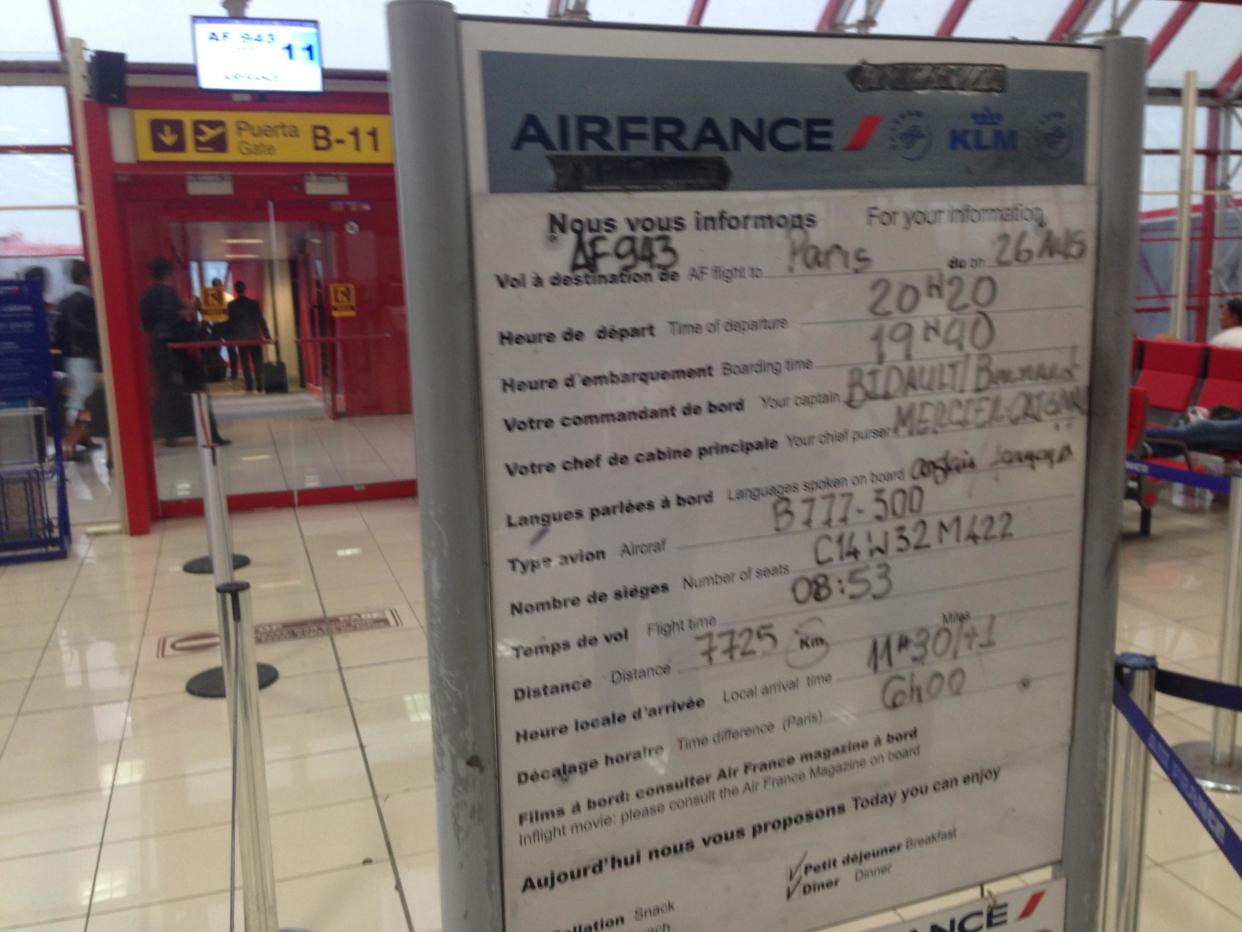Air France: The strike-prone Lidl of long-haul flying or a smooth operator?

“The Lidl of long-haul flying” — that was how I summed up my most recent experience of flying Air France, on a trip from Paris to Havana and back.
Over the years, I have flown to Cuba on all manner of planes and airlines: the Ilyushins of Aeroflot and Cubana, an Airbus A300 belonging to the now-defunct Venezuelan airline, Viasa, the dull old Boeing 767s of British charter firms and even a 757 belonging to Monarch that inconveniently flew over Cuba to San Jose in Costa Rica first.
Many of these planes had to refuel in Newfoundland, adding hundreds of miles to the journey and several hours to the experience. But all of them were preferable to the endurance test on Air France. The cabin crew were offhand, the food was terrible and the plane was an hour late in each direction for no apparent reason. But easily my biggest concern was that the two key dimensions of seat width and legroom seemed woefully inadequate.
The French airline packs 468 passengers into a Boeing 777. And no, that’s not “economy only”. The plane also had business and premium-economy cabins – Affaires and Alize respectively. For comparison Air New Zealand flies the same jet, with the same classes, with only 332 seats, while BA packs only one more passenger into its double-deck A380 SuperJumbo.
The planes are devoted to Air France’s Caribbean and Indian Ocean services, which are predominantly for holidaymakers and “ethnic” travellers – people with heritage from islands such as Martinique and Reunion, and their families and friends. At the end of my round-trip to the Cuban capital I felt I needed some more vacances to recover from the experience.
I also felt I had been shortchanged, having paid the thick end of £900 return for what I anticipated would be a standard, European flag-carrier experience similar to British Airways, Lufthansa and Air France’s partner, KLM.
According to John McGrath, though, I was either uncharitable or unlucky (or, perhaps as usual, both). He has just returned from Japan, which he reached on an impressively cheap £471 ticket from Heathrow - going out via Paris to Haneda airport, practically in the centre of Tokyo, and back from Kansai International, close to Osaka.
“I was very impressed with every piece of their operation,” he says. “On every flight each cabin crew encountered was first class. While they are almost all of a senior vintage it did feel like proper French hospitality. Highlight being a very sweet slightly senior cabin crew on the Paris-Tokyo sector being liberal with the dispensing of whisky whether requested by passengers or not.”
He also found the inflight entertainment to be “top notch”, and this was complemented by a “Champagne aperitif, decent food and Camembert cheese”.
“Small touches such a menus in economy really gave the sense that Air France have put a lot of thought in keeping even their 'steerage' passengers comfortable,” Mr McGrath says.
Coming home, he paid £120 to upgrade to premium economy, which he describes as “a good investment on a 12-hour sector”. At £10 per hour, I agree. It’s well worth looking out for upgrades at check in for a lot less than you would pay when booking in advance.
About the only common ground he and I agree on is that food and drink in Terminal 2E at Charles de Gaulle airport is dismal and expensive.
Mr McGrath concludes: “This good experience would typically see me recommend Air France to friends or family wanting good-value fares and great economy service, arguably on par with the three big Middle East carriers.” But there’s a caveat: the ever-present risk that industrial action could disrupt your trip.
“Luckily my flights narrowly dodged both French air-traffic control strikes and cabin-crew strikes. The regularity of issues is such a sad Achilles heel for the carrier,” he says.
Indeed it is. The latest three-day walk-out by some Air France cabin crew was last weekend. The airline warned that even on the flights which were operating, some passengers might be offloaded because of what Air France calls “a reduced crew composition”. If the airline was obliged to dispatch a plane with fewer crew that legally permitted for a full passenger load, some travellers would be offloaded to meet the stipulated cabin crew to passenger ratio. Which, I reflected, would at least mean a little more elbow room for the lucky travellers allowed to remain on board.

